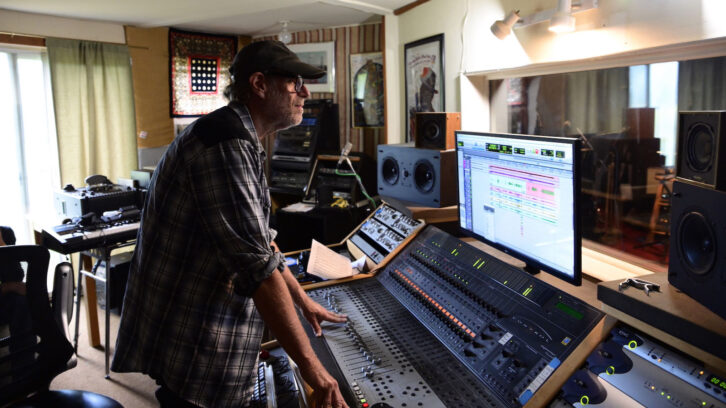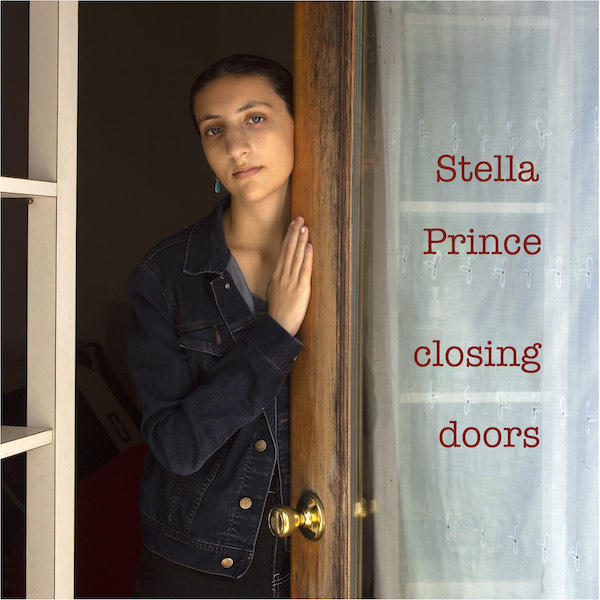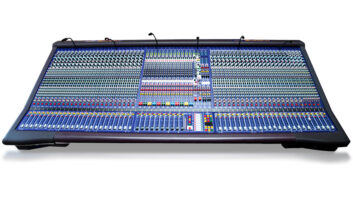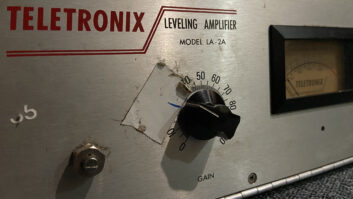
When it comes to producing, getting the artist to trust you with their work and feel confident that you see and share their vision for it is crucial. Aaron “Professor Louie” Hurwitz knows that all too well, having strived to gain that trust with every artist he’s worked with, regardless whether it was veteran, revered acts like The Band, Graham Parker, Commander Cody and others, or young, emerging performers like folk artist Stella Prince. In this expert guest blog post, Professor Louie shares his thoughts on developing that trust, using how he began working with Stella Prince in his private studio, LRS Recording, as an example.
•. •. •
I have been living in the Woodstock, NY area for years, working as an engineer, studio musician and producer, and have owned LRS for about 23 years. I’ve produced artists who are at all stages of their careers, and have learned that taking my time works best for any project.
Recently, I got a call from a longtime friend, Jason Rothberg, a music supervisor, alerting me to a young singer-songwriter in our area, Stella Prince. Stella has a voice and sensibility well beyond her years, and can draw listeners in with her vulnerable lyrics and captivating vocals. She has a few singles out and I played a song by Stella on my radio show, Professor Louie’s Woodstock Rockin’ Revue, on WKZE and got great responses, so I invited her to my studio just to hang out a bit and let me hear some of her new songs.
The first step in working with Stella was to hear the songs and work on them together to get one ready to record. I wanted to get her thoughts about where she was musically headed and learn her approach to her writing. For most songwriters, their songs are the most important part of their lives. I was very impressed with her focus and definite ideas, yet she still was open to trying new directions.
My first impression of Stella was that she was very knowledgeable about how the music industry is working now. She had done her homework musically and was extremely enthused about progressing and improving her performance, and she was ready for new ideas. That said, one of her qualities is that she will not accept “no” for an answer and carries on with her beliefs.
When I sat down with Stella, she played me about six songs and I picked one to record. She had a definite idea of what she wanted to accomplish with the single. Unfortunately, I had to leave on a small tour, so she took that song, recorded it at another studio and released it. I chalked it up to her being anxious to get the song out.
I started reflecting back on major recordings that I had produced and the time element which now helped me with Stella.
When I co-produced the Jericho CD by The Band, they were looking to make a comeback since they had not released a new recording in 17 years. It took me over six years working with them prior to the album to gain their trust so that they’d let me record their music. They finally gave me the go-ahead to reconstruct and mix their version of “Atlantic City,” which became the hit of the Jericho CD released in 1992. Taking my time made the biggest difference.

Stella came to my studio again and played me more songs, and our professional trust became stronger. She played a half-dozen more songs and wanted to take a different path this time—she wanted to choose one to record singing and playing with musicians live in the studio. She was very open to all ideas of arranging her songs for the musicians; having never played with musicians in the studio before, the challenge was on. We chose the song “Closing Doors.” I felt the lyric was very close to her and that she would sing it with a very heartfelt performance.
Since all her previous recordings had few instruments and were in a folk format, we decided that “Closing Doors” should go a step further and aim for a Folk Rock feel with a drummer, upright bass player, guitar, piano and Hammond Organ. It was a bit of a gamble—I am very cautious of musicians overpowering the main artist on a recording, and since Stella had never worked with players in the studio, I was concerned her performance could end up getting overwhelmed by big drum sounds and too much production.
At this point in her career, I did not want to depart too far from her earlier recordings. She had already established a simple production, “Retro” sound. I did not want her words, vocal and feel to be overshadowed by too much production and potentially turn off the fanbase that she has been building.
Another challenge with “Closing Doors,” was that there are two different tempos within the song from verses to chorus. This created the issue of how the musicians would follow the tempo changes. In this case, a click was out of the question in order to keep the proper feel of the song.
Choosing the players was critical. Our Woodstock area is a large resource of players and I wanted to find musicians who were closer to Stella’s age, had the experience and would take her seriously. They needed to understand the depth of her writing.
My first consideration was to find a drummer who could go with the flow, and the exact right player entered my mind. Lee Falco, who I had brought on a few of my gigs years ago and had additionally gained experience by playing with Donald Fagan was luckily available and game. He did a great job following Stella, and once Lee gave the nod of confidence that Stella was happening, all the other players fell into place—Vito Little Rock on guitar, Ryan Berg on Bass, myself on organ and piano, and Stella singing and playing guitar.
We got the take in a few hours and I gave Stella a rough mix for her to check out. My only concern was her need to get it done, as she had a few showcases coming up and was on her own timeline of having to release the track as a single. During the process of recording, sometimes the singer needs to hone it a bit, and in listening, I realized that some of the words were a bit busy.
Also, since it was live vocal, there were a few concerns; one was the microphone. You always try to guess which one will fit a singer best, but you never know until you hear it back. If the singer likes the performance, sometimes you can EQ or compress and work on the sound, but in this case, I realized after a day or so that a Neumann U87 would be much better for her voice then the Audio-Technica 4050 I used. She has a quality in her voice that for this song needed a smooth high-end. We decided to try to re-record the vocal again, so I called my friend, producer Jerry Marotta from Dreamland Studios, and borrowed a few U87 mics.
Craig Anderton’s Open Channel: Profiles in Gear Lust
I realized early on in the recording process that this might happen. In my studio, I have a few rooms and Stella’s original vocal was in one of the rooms that gave us plenty of isolation. I recorded her acoustic guitar with mics and a DI—a choice that turned out to be very helpful, as some of the original vocal leaked into the mics, forcing me to use mostly her guitar DI sound and sneak in the mic sound to give the acoustic guitar the right feel and sound.
Another concern as we re-recorded the vocal was that Stella had to follow the tempo changes that she originally created with her performance; now she would have to follow the drums that originally followed her.
I am very sensitive about recordings that don’t communicate, which is why I always prefer to record vocals and musicians live in the studio. When you record vocals live and every musician is following that vocal, it helps with the communication of the song. Stella and I finally figured out if she just sings the song the way it was intended, it would come together and it did. She certainly came off like a pro and “Closing Doors” is currently on the radio; when I hear it on the radio? Mission accomplished. The production certainly does not take away from her song or performance. The vocals stayed heartfelt and it is very relatable and impressive.
To me, what makes a great recording 99% of the time is the quality of the song—so it is necessary, especially with a songwriter, to listen to all the songs they have written and not record right away. Listening and showing interest in their material helps to gain the trust of the artist and prove to them that you are there to help them move their career further and are not there just for your own personal gain.
Stella claims that “Closing Doors” is one of her favorite songs and I am proud to have helped her with this recording experience. Moreover, I’m looking forward to seeing her have a lasting impact with her songs on the Folk/Americana musical landscape.







